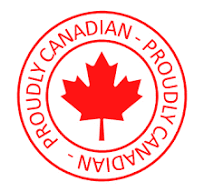Wednesday, February 8, 2023 1:16 pm, Posted by Absolute Destruction

Financial fraud occurs when someone denies you money that's rightfully yours or harms your finances by deceptive, misleading, or other illegal means.
There are several forms of financial fraud, including but not limited to the following:
Identify Theft: This occurs when someone steals an element of your financial information — like an account or credit card number. The thief then uses this information to take money from your bank accounts. In some instances, the culprit may go a step further and use the information to open accounts or take out credit cards. This leaves the victim responsible for charges. Identity theft can have long-term ramifications, such as poor credit rating, denied payments and unfair harassment by collection agents.
Mass Marketing: Fraudsters will mass-connect with individuals, usually through email, text or phone call, often posing as legitimate financial-related institutions, with the goal of receiving personal information for ill intent. Or, fraudsters will reach out with a false financial win, like a fake inheritance or lottery win where the recipient needs to pay a fee before the victim can receive the benefit.
Mortgage and Loan Fraud: This refers to an event in which an individual takes out a loan or a mortgage using your name and your information.
Insurance Fraud: Insurance fraud occurs when a claimant falsifies an insurance claim — under someone else’s name — which they’re not entitled to.
In addition to these four examples of financial fraud, some other forms include bribery, ransomware, Ponzi schemes and tax evasion — with thieves devising new ways to access personal data constantly.
The Canadian Anti-Fraud Centre received 101,483 fraud reports in 2021, which resulted in $160 million in losses. Further, it's estimated that just 5% of victims file a report. Thus, with financial fraud on the rise, there are a few measures you should take to protect yourself and your family — including the safe disposal of bank statements and securely destroying insurance documents.
5 Ways to Protect Yourself from Financial Fraud
1. Shred Sensitive Documents: Ultimately, anything with your name on it should be destroyed and not simply disposed of in the recycling or garbage (where it could fall into the wrong hands). There are several ways to dispose of your sensitive papers, including at-home shredding, burning, hand-cutting or pulping.
If you don’t feel comfortable destroying papers yourself, or perhaps you have bankers’ boxes or bags full of documents that would take considerable time and effort, connect with us at Absolute Destruction. We are happy to visit you at home at a convenient time to securely destroy your paperwork, including bank statements and insurance documents.
For added peace of mind, our bonded technicians wear IDs and uniforms, and we also provide a certificate of completion once the work is complete.
2. Keep a Handle on Your Banking: There are multiple ways to manage your bank accounts to minimize the danger and threat of financial fraud. Consider the following tactics:
- Put a spending limit on your bank accounts.
- Check your bank statements regularly.
- Inspect your credit reports frequently and add a fraud alert if you’re able to do so.
3. Be Wary When Online: If you receive an unsolicited yet convincing email, be wary. Don't click links or open emails you're unsure of. If you’ve received an email that raises suspicion, connect with the sender directly to check its authenticity. Block any email addresses or phone numbers that seem corrupt.
4. Securely Dispose of Old Technologies: Most modern consumers shop online, file their taxes online and use internet banking. Once a piece of technology (like a laptop) has broken beyond repair, dispose of it securely. Advanced criminals can still access a computer’s memory (where passwords, account information, and other personal details are stored) even when — to the untrained eye — the computer appears to be defunct.
5. Keep Your Personal Information Personal: Don’t share private information online, and don't disclose requested data when it doesn’t feel right. Further, don’t share information that may otherwise seem innocuous, like birthdays, your location, or even photos of a boarding card. Each of these tidbits of data can be used by a ruthless thief.
Lastly, if you’re a victim of financial fraud, contact your bank, the Canadian Anti-Fraud Center and the Canada Revenue Agency.
Take Away
The safe and secure disposal of sensitive documents and old technologies is key to protecting yourself from financial fraud — and this is especially true if you’re self-employed and work from home.
Call us at Absolute Destruction at (905) 841-0298 or email us at info@absolutedestruction.ca for more information. We’re always happy to help.

